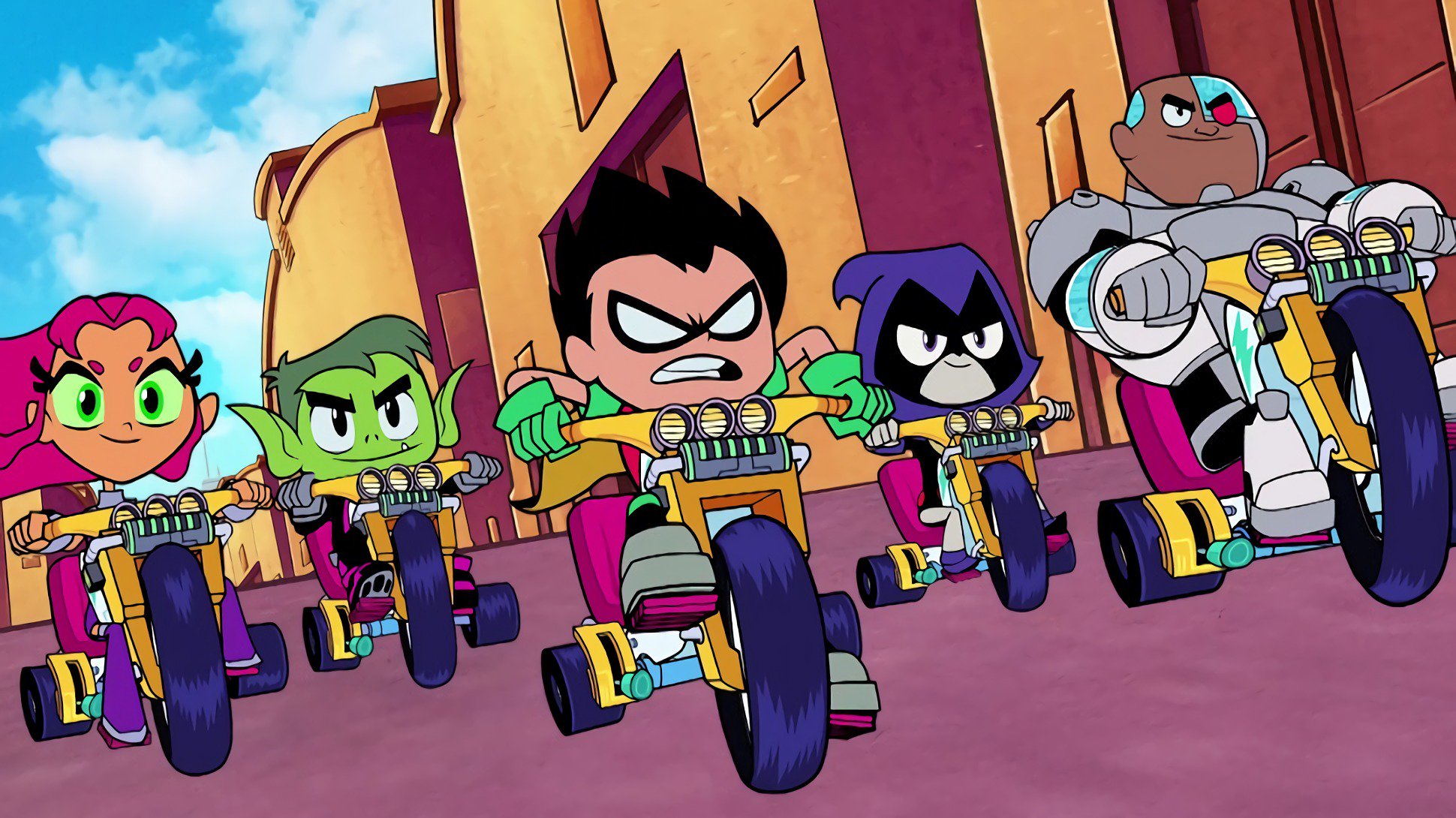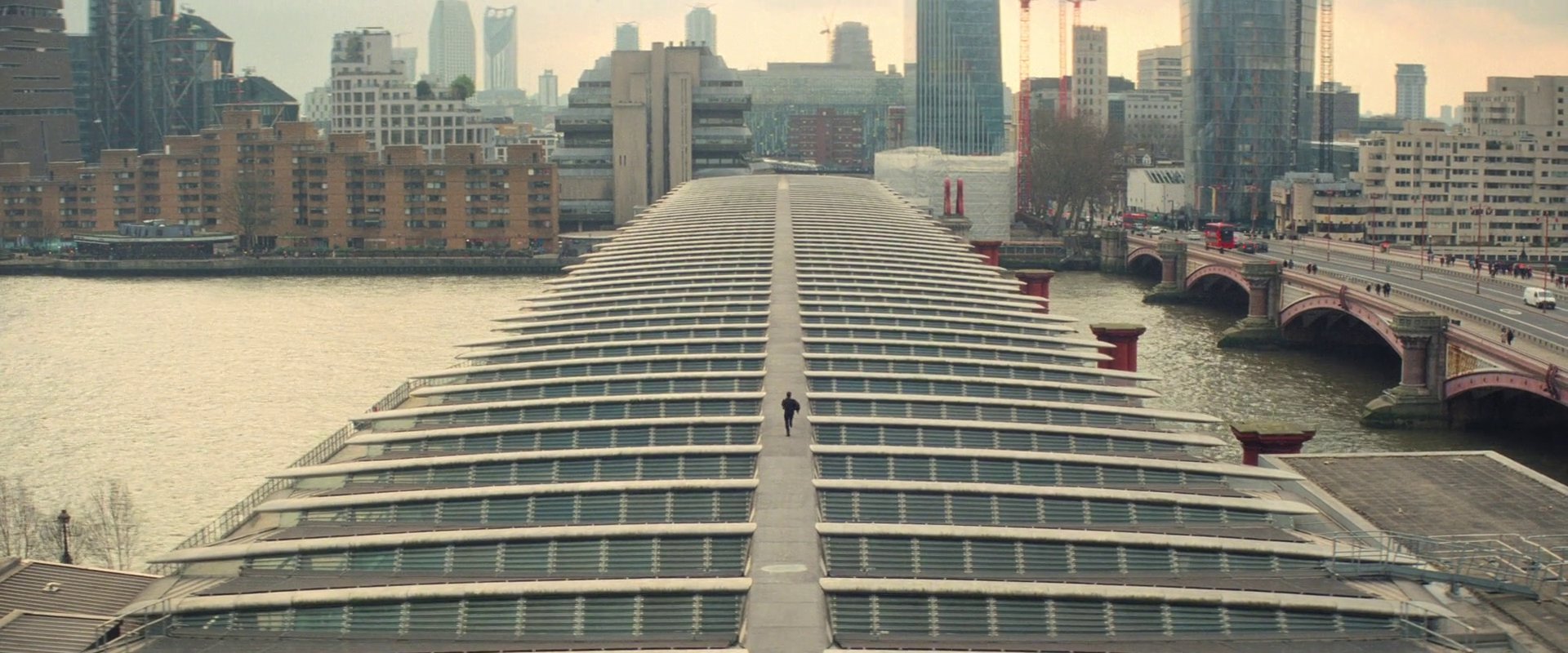For those unfamiliar with the show, “Teen Titans GO!” is a reboot of the original early 2000’s “Teen Titans” TV series. It abandoned the original’s serial-based plots and anime inspired style, for colorful flash animation art and quippy pop culture references and poop jokes. While the show has received generally mixed reception over its run, Warner Bros. Animation has decided to bring it to the big screen with “Teen Titans GO! To The Movies.” Can it be better than its source material?
Fans of the “GO!” reboot will be glad to hear that the show’s brand of fast paced jokes remains intact in this adaptation. However, even detractors will be glad to hear that the film’s sense of humor and storytelling is leagues ahead of what the show has to offer.
Jokes hit their mark far more often than in the show, leading to many amusing references and tongue in cheek jokes related to superheroes and the movies created around them. Both DC and Marvel are targets throughout the film, and some of the best jokes come from a true place of surprise.
This awareness of superhero abundance also helps the story succeed as well. The plot is based around the overabundance of superhero films, so much so that heroes without a film are considered inferior. This leads Robin to attempt to land himself a movie, and thus we have the basic plot.
It all works nicely together, jelling like a Saturday Morning Robot Chicken episode. There are indeed a few jokes that don’t land, and some that over stay their welcome. They’re easy to look past, though, due to the rapid-fire nature of other background and foreground gags happening, and the earnestness of the vocal performances, with Scott Menville (“Shaggy & Scooby-Doo Get a Clue,” “The 7D”), Hynden Walch (“Adventure Time,” “ChalkZone”), Khary Payton (“Young Justice,” “The Walking Dead”), Tara Strong (“Batman: Arkham City,” “The Powerpuff Girls”), and Greg Cipes (“Ben 10,” “Teenage Mutant Ninja Turtles (2012)”) all reprising their roles as Robin, Starfire, Cyborg, Raven, and Beast Boy, respectively.
Will Arnett (“Horrible Bosses,” “Arrested Development”) and Kristen Bell (“The Good Place,” “Veronica Mars”) provide great work, and there are a whole host of cameos that are wonderfully done, but the real stars are the Titans. The cast from both the original show and “GO!” reprise their roles and bring a cheerful earnestness that only seasoned voice actors can bring to a film this bizarre.
Halfway through the film, the plot seems to stop for an extended gag based around time-travel, and that gag is the best way to describe “To The Movies” as a whole. It puts the plot at a standstill to have some fun riffing in the DC universe. It isn’t Shakespeare, and isn’t going to deconstruct the way we view superhero films, but it is a bundle of fun, and that’s all it wants to be.
Surprisingly, there are also quite a few musical numbers that are pulled off well. The film also switches back and forth between different animation styles and techniques for different gags, even poking fun at a Disney classic about a third of the way through in what is probably the film’s best joke.
If you need 90 minutes of fun, look no further than “Teen Titans GO! To The Movies.” Fixing many of the problems the show had, the film is extremely funny with a well thought out plot. Nothing here is Oscar worthy, and there are definitely parts where it dips into the realm of grating, but the highs absolutely outweigh the lows to provide the most bizarre superhero film and studio film this side of Deadpool’s domain. 4/5







